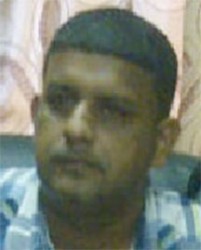Amid accusations that he has improperly tried to direct a constitutional commission, President David Granger said he had asked for a delay in police promotions to address complaints that have been made against law enforcers.

The constitution insulates the Police Service Commission (PSC) and similar bodies from being directed by anyone but critics said that was exactly what the President did when he had Minister of State Joseph Harmon write to the PSC and asked that the police promotions be put on hold.
Yesterday, a statement from the Ministry of the Presidency reported the President as saying that there have been many legitimate complaints by members of the PSC and aggrieved police officers of abuse and malpractice in the Guyana Police Force (GPF) and it is for this reason that he has asked for the promotion of police officers to be delayed.
“We are investigating the complaints, which have been made to us and we have asked the Police Service Commission to simply delay so that we can answer those queries and once those queries are satisfactorily answered we will proceed. It’s no intention on my part to impede the work of the Commission,” the President said.
The President’s reference to “legitimate complaints” by members of the PSC will raise further concerns about the undermining of this body. PSC members should be conducting their deliberations within the body and not passing complaints to the executive.
Speaking to the media at State House, Granger added that his primary focus is the prevention of any further damage to the security sector. He said that his Government cannot and will not ignore the complaints and evidence of injustices, which may have taken place.
In a letter dated June 26, Harmon informed the PSC’s Secretary Marvalyn Stephens of Granger’s request to hold the promotion of officers of the Force to allow for further scrutiny of the proposed list of ranks.
“We are not trying to trample on the constitutional rights of the Commission but damage can be done if persons, who are not fit and proper, make decisions, which are injurious to public security. We want the constitutional Commission to function efficiently but (at) the same time we want to make sure that the public can depend on the decisions that come out of that Commission being in the best interest of the nation,” the President reiterated.
Observers note that the President’s action calls into question the judgement of the Police Commissioner, Seelall Persaud who made the promotion recommendations and of the PSC which is to evaluate them.
Although Granger’s directive to halt its consideration of promotions was deemed unconstitutional, Chairman of the PSC, Omesh Satyanand on Tuesday said that some members of the body have decided to comply.
“It was put on hold until further notice but it is unconstitutional,” Satyanand told Stabroek News, after he was asked whether the president has the authority to issue such a directive and the commission’s intended course of action. He explained that because of the letter containing the directive, “some of members have decided to put it on hold.”
Opposition Member of Parliament and former Attorney General Anil Nandlall has since signaled his intention to file legal proceedings if the directive is not withdrawn.
Satyanand stated that based on the contents of Article 226 of the Constitution, the directive is unconstitutional but some members complied with it since it was the president who had made the request.
Article 226 (1) states, “save as otherwise provided in this Constitution, in the exercise of its functions under this Constitution, a Commission shall not be subject to the direction or control of any other person or authority.”
He said his position would change only if there is anything in the constitution which states otherwise.
According to Article 226 (3), “Any question for decision by a Commission shall be determined by a majority of the votes of the members of the Commission present and voting at a meeting of the Commission at which a quorum is present, and if on any question the votes are equally divided, the Chairman or other member presiding shall have a casting vote in addition to his original vote….”
The other members of the Commission are Lloyd Smith, Harold Martin, Keith John and acting Chairman of the Public Service Commission Patrick Yarde.
Many have questioned the timing of the president’s instruction, which coincides with an ongoing inquiry into the police force’s handling of an investigation into an alleged assassination plot against him. Testimony at public hearings for the inquiry has placed several senior ranks, including Crime Chief Wendell Blanhum and Assistant Com-missioner Clifton Hicken, under scrutiny for their handling of the case.
They are among officers who have been recommended for promotion by Police Commissioner Persaud, who has also faced scrutiny for his intervention in the matter. In a list that has been circulated, Persaud recommended that Hicken be promoted to the rank of Deputy Commissioner and that Blanhum be elevated to the rank of Assistant Commissioner. Assistant Commissioner David Ramnarine, who is the most senior rank after Persaud, was not included on the list and this has raised eyebrows.
The law provides for the Commissioner to make recommendations to the Police Service Commission for the promotion of ranks from Inspector to Assistant Commissioner.
Satyanand made it clear that the list that is in circulation contains recommendations by Persaud and not the Commission. According to him, the list was received from the Commissioner last month and up until now has not been considered.
Opposition Leader Bharrat Jagdeo, in a statement to the media that was accompanied by a copy of the letter sent by Harmon to Stephens, last week blasted the government over the directive.
He described the development as “yet another vulgar and authoritarian attempt by the president to trample upon the independence and functional autonomy of a Constitutional agency.” He said the “the President and his Government continue, on a daily basis, to violate the rule of law, assault important democratic institutions and breach, in the most egregious fashion, the Constitution of the Co-operative Republic of Guyana.”
Jagdeo used the opportunity to urge the Commission “not to succumb to these unconstitutional and unlawful directives but to continue to discharge its mandate in the manner provided for by the Constitution.”






